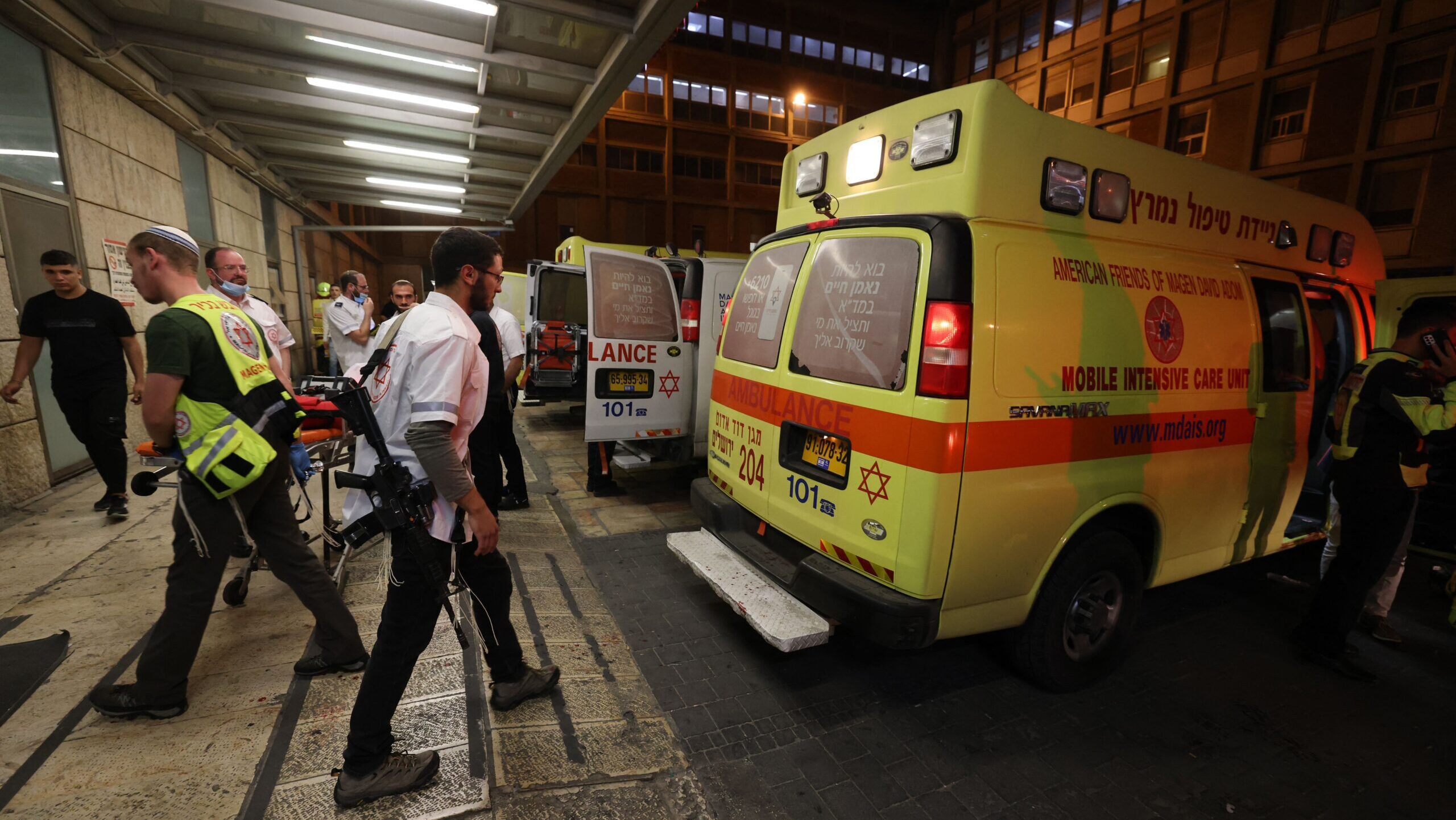Medical Care in These Trying Times
How Israel’s top hospitals are dealing with the war
In any time of war or unease, medical professionals are often the front-line workers least recognized—yet their impact saves the lives of countless people.
Israel today is not different; almost four weeks since Hamas launched a war against Israel with their invasion that led to the death of more than 1,400 Israelis, mostly civilians, the country’s hospital systems have been working overtime to ensure the wounded get their proper care—while at the same time coming to the aid of their regular patients.
Dr. Arnon Afek, associate director general and acting director of Sheba General Hospital and the chairman of the Department of Medical Administration at the Sheba Medical Center, along with Dr. Yoram Weiss, the director general of Hadassah Medical Organization, spoke to The Media Line about the challenges the medical system has faced—and how they are overcoming them.
“We have been facing … a huge number of injured—more than 4,000. Initially, they were in periphery community hospitals and then they were transferred to bigger, central hospitals (such as Sheba),” Dr. Afek said.
The focus of those patients is treating the most severe in intensive care units at these hospitals.
Within this framework, Dr. Afek outlined the four major issues:
First, rehabilitation takes the form of working with patients to ensure they can get back onto their feet and into their normal lives again physically.
Dr. Weiss mentioned the importance of this as well, and Hadassah has a new rehabilitation center opening towards the end of the year. It was supposed to be opened next year but due to the war, they rushed the opening.
Second, “the people underwent such trauma during this time, so we need to give them the psychological support they need as well as to work to prevent PTSD,” Dr. Afek said.
Dr. Weiss mentioned that so many displaced Israelis from the north and south have found themselves resettled temporarily in the Jerusalem area, so one of the first acts was giving them the medical attention they need, as well as important medications. The national insurance company has since been able to keep patients up to stock with their medicine.
He mentioned Hadassah has been very prepared for the trauma of the war due to their experience dealing with the Second Intifada more than 20 years ago.
Third, Hamas continues to fire dozens of rockets into Israel every single day. Besides the obvious risk of debris or rockets injuring civilians, the shock and stress that may come from constant rocket fire and sirens can be extremely disturbing.
An unfortunate example of this was the death of 9-year-old Tamar Haya Torphiashvili, from Ashdod, who went into cardiac arrest from a rocket siren and died a week later.
These cases mean hospitals must be prepared for a daily influx of people seeking care from such attacks.
Finally, Dr. Afek explains, is “looking to the future.” Even in peace times, Israel is known for its lack of physicians and training of doctors. Especially now, many of the younger doctors are serving alongside troops giving medical support. Dr. Afek says this is a “long-term [problem] … We need more doctors.”
Dr. Weiss praised the efforts of the team at Hadassah who were able to set up an underground infrastructure in case missiles target the hospital center—something that happened to Barzilay Hospital in the south.
Dr. Afek is personally involved in plans to open a new medical school at Reichman University in Herzliya and said other universities are planning on opening medical schools. “In 2022, we only trained 40% of the physicians we need,” he said. This, coupled with an aging medical force, means the country has an urgent need for new doctors—war or peace.
Dr. Weiss said that Hadassah doctors are working around the clock to keep up with the needs, and many doctors have even come out of retirement to help.
Despite this shortage of doctors, he says they are overcoming the challenge and providing the care patients require. Dr. Afek attributes this to the “main asset of the country: the spirit of the people.” He also points out that international support has been overwhelming, with physicians and other medical professionals constantly calling asking to volunteer, Jewish and non-Jewish alike. He said in the hospitals the need is not as strong, but several people were accepted to assist in the forensic work to identify the victims of the October 7 attack, many of whom were burned beyond recognition.
At Hadassah they have accepted eight or nine physicians from outside the country, all of whom have undergone vetting to ensure they are qualified, as well as those that fill a specific required need, Dr. Weiss said.
Thankfully, at the moment, Dr. Afek says, Sheba is still able to perform many of the elective surgery procedures planned, while still assisting in every emergency that arises in the civilian sphere. Hadassah is operating the same way. Elective surgeries, however, are tougher to perform in hospitals closer to the frontlines.
[We are] trying to give the maximum medical care to the people of Israel; everyone is giving more than 100% of their effort.
In all, Dr. Afek says they are “trying to give the maximum medical care to the people of Israel,” and that “everyone is giving more than 100% of their effort.”
Dr. Weiss stresses how incredible the civic society and the hospital staff have been, with staff “immersing themselves to take care of the infrastructure” for the war.
“People gave up their time—it is amazing,” he said.


